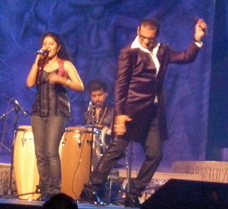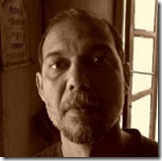 Finally the 2010 NABC came to an end on Sunday July 11th at the Atlantic City convention center in New Jersey with a “blow out” performance by Abhijeet. Although his mockery of Bengali culture was not well appreciated by many Bengalees who slowly drifted away from the hall (which was not liked by the singer at all), his performance was just what was expected of a Bollywood performer – entertaining but nothing extraordinary. However, people who came to the conference went back with memories – some of which may not be very pleasant but I would think most of them would be happy memories. Memories of the wonderful performances by Sahaj-ma and Utpal Fakir, Kaivalya Kumar and few others, memories of meeting friends, those long adda sessions and the World Cup finals.
Finally the 2010 NABC came to an end on Sunday July 11th at the Atlantic City convention center in New Jersey with a “blow out” performance by Abhijeet. Although his mockery of Bengali culture was not well appreciated by many Bengalees who slowly drifted away from the hall (which was not liked by the singer at all), his performance was just what was expected of a Bollywood performer – entertaining but nothing extraordinary. However, people who came to the conference went back with memories – some of which may not be very pleasant but I would think most of them would be happy memories. Memories of the wonderful performances by Sahaj-ma and Utpal Fakir, Kaivalya Kumar and few others, memories of meeting friends, those long adda sessions and the World Cup finals.
But the people who went back with a bad taste in their mouth (no, I am not talking about the food served by Shahnawaz) were the people who came all the way to showcase their talent through dance, drama and music. These people paid group registration for their show, paid individual registration fees for their entire troupe and spend big dollars to bring their show with the hope to share with their Bengali friends who came from around the country. Continue reading



